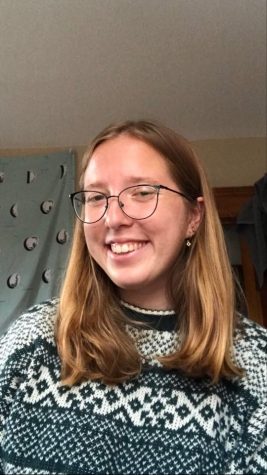Macalester prioritizes student privacy in the era of big data
October 31, 2019
More than 2,000 students rely on Macalester to care for them in one way or another: housing, meals, academic accommodations and myriad of other needs.
But caring for hundreds of students is a tall order — even taller when multiple offices are working with the same students and need to coordinate their efforts. To streamline this process, the college uses a software called Beacon.
At its core, Beacon is a lot like an online filing cabinet. Certain staff and administrators can use the database like a digitized note-keeping system to track which students need what.
If a student meets with someone in Student Affairs about an issue, notes from the meeting are put in Beacon where Residential Life and Disability Services will also be able to access those notes.
This system has a lot of practical applications.
Say, for example, a student has a medical emergency — they break their ankle and need surgery. If they report this injury to Disability Services, a member of Residential Life might reach out to them to offer temporary housing accommodations as well.
“It is done as part of the national best practices on how to coordinate student care,” Assistant Dean of Residential Life Coco Du said. “[Students] have multifaceted connections on campus and whether it’s a resource you need or a need you have, it’s possible you’re in separate communication with two to three different offices and resource networks within the same week.
“It’s [like] synchronized swimming,” she continued.
While being able to share data like this makes handling student care a lot easier for Macalester, Beacon users are trained to be incredibly cautious with this information.
According to Assistant Vice President for Student Affairs and Dean of Students DeMethra LaSha Bradley, Beacon is only available to a few staff and administrators, mostly those in Student Affairs. No faculty has access to Beacon.
The Office of Title IX & Bias and Harassment does not use Beacon to access or input student information of any kind. Neither does any staff member in the Laurie Hamre Center for Health & Wellness.
“That [information] would never end up in Beacon,” Bradley said.
The offices that do use Beacon are also vague in their notations, especially if the situation involves medical information of any kind. They might say the student is dealing with a wellness issue or a family matter.
“We place a very high value on student privacy,” Associate Dean of Students Andrew Wells said. “What would be important for me, would be for students to know that they can trust and have confidence in the staff that they’re talking to, their mentors on campus, their counselors and advisors, that we’re not sharing their personal lives inappropriately or without their consent.”
Beacon also stores other information. For instance, every year, the incoming class of students takes a survey called the Student Strengths Inventory (SSI).
“They’re self-disclosing things like where they feel comfortable in terms of educational commitment, socially, academic readiness,” Bradley said. “All that data goes somewhere and Beacon houses it.”
That information is then used by offices like Student Affairs and Institutional Research to evaluate and respond to the needs of Macalester students generally.
This information is also privileged by the school. According to Wells, while many surveys like the SSI claim to be predictive of student success, Macalester doesn’t use the information that way.
“That feels a little big-brothery to me, so we don’t do that,” Wells said.
Political science professor Patrick Schmidt researches surveillance in public spaces. In 2018, he published a chapter called “Building Ivory Surveillance Towers,” in which he discusses how the world of higher education has come to use data collection and surveillance.
According to Schmidt, Macalester can count itself among those colleges still respecting the privacy of its students.
“I do think [Beacon is] being used responsibly,” he said. “I think the ethics and the institutional accountability is strong at Macalester and that keeps everything being used for the right reasons.”
But not all colleges are like Macalester.
“There’s an old line, and Peter, Paul and Mary sing it, ‘If you do these things in the green wood, what will happen in the dry?’” Schmidt said. “These are the things we’re doing in the green wood of Macalester’s values. If you put yourself in a situation where any institution is under dire financial need and different people come in to keep positions in the administration — this is a tool and the tool can get used in a variety of ways.”
Some colleges, especially those struggling with low retention rates, use predictive analytics to determine what programs could help keep students in their seats and which students need extra support.
California State University at Sacramento has even begun to physically track students through their smartphones and laptops to monitor where they spend their time and how that relates to their academic success.
For Schmidt, retaining students is often mutually beneficial to both the college and the students. But he believes the shadow of surveillance could forever change the way we think about institutions of higher education.
“[We see] university as a time for exploration and experimentation,” Schmidt said. “You want to take a time where you’re going to be a Marxist, you want to say things in class that are going to be off the wall and that’s okay.
“It is not true, that old saying that you have nothing to fear if you are obeying the law,” Schmidt said. “[Surveillance] still creates a shadow on what you say and what you do.”
For now, Macalester — which regularly has a retention rate in the 90s — remains a long way off from surveilling its students.
“I want students to be well,” Du said. “When I know a student needs help… I don’t think about ‘Can we retain them after this year.’ You’re a real human being.”













